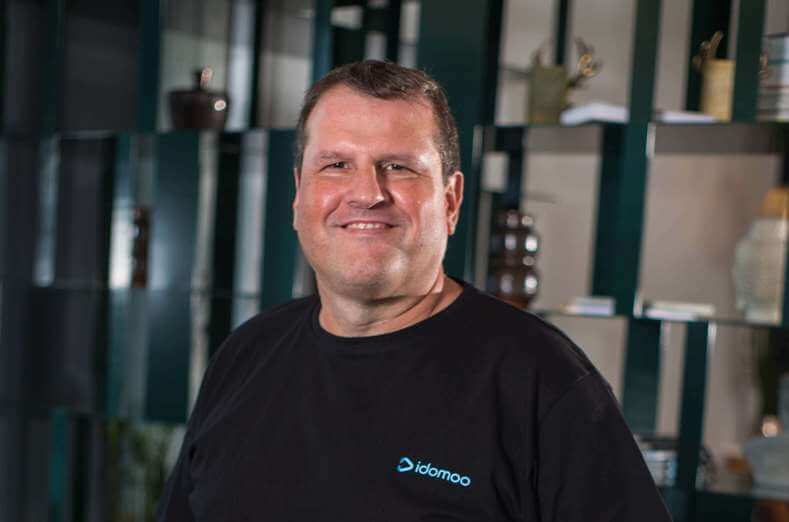Imagine a world where sitting on the couch, side-by-side with your best friend in another state doesn’t require a plane ticket. Or buying a new pair of shoes is possible with the swipe of your hand, no credit card (with or without chip) required. Welcome to the metaverse — a virtual world we don’t just interact with, but exist in.
The concept has caught the attention of some of the internet’s biggest platforms. Facebook is just one company betting on the eventual rise of the metaverse. Its rebranding to Meta in 2021 made waves in the tech world and beyond.
The new name is intentional. According to the company, Meta aims to be a leading platform in the metaverse. If you’ve ever played Fortnite, World of Warcraft or Second Life, the released demos of Meta might look familiar.
But while this shows what the metaverse may look like, questions of what it actually entails are left unanswered. The metaverse has obvious applications to the gaming industry, but what does it mean for other industries like retail, banking and hospitality?
From Nike producing NFTs to crypto poker to business conferences in Decentraland, there are quite a few ways enterprises can — and are starting to — transition to this new world. Read ahead to learn what businesses need to know for the inevitable shift to the metaverse.
The Race for the Metaverse
The metaverse is a 3D virtual world where users can interact and experience things as they would in the real world.
Many internet giants have started a gold rush to become the leading metaverse platform. There’s no such thing as too large of an investment for the biggest players in this space.
- Tokens.com, a Canadian investment firm, has purchased a plot of land in the metaverse platform, Decentraland, for $2.43 million.
- Microsoft has acquired Activision Blizzard for a staggering $75 billion.
But because the metaverse is still a relatively new term, its definition will likely change in the future. At the forefront of its already rapid evolution are different companies creating and proposing their own renditions of what they believe the metaverse will one day be, all in the hands of everyday users.
Here are some players that hope to provide the underlying technology platform for the metaverse:
- Meta Platforms Inc. (FB)
- Unity Software Inc. (U)
- Roblox Corp. (RBLX)
- Epic Games
- Autodesk Inc. (ADSK)
- Microsoft Corp. (MSFT)
And they’re all competing to launch the best, most advanced demo first. Meta Platforms Inc. was one of the first with a series of Youtube videos showing different use cases.
While Facebook’s demo is more of an AR-based world, Microsoft envisions a virtual world accessed through VR headsets.
And Epic Games already amassed a crowd of millions with Travis Scott’s virtual concert.
In many ways, this parallels the race to become the leading social media platform. Popular features dominating one social platform are integrated into another. Companies compete to see who can make the most of the biggest trends.
We’ve seen it recently with the short, shareable videos TikTok has mastered, which Instagram, YouTube and others are desperately copying. The metaverse will be no exception.
Welcome to the Metaverse: Business Edition
So how will the metaverse expand beyond the world of entertainment? Here’s my take.
Companies will try to provide a virtual experience that resembles a real-world experience. This means retail companies will build a virtual experience similar to — but better than — their brick-and-mortar shops. Banks will create something analogous to a physical bank experience.
We’re already seeing hints of this. After COVID-19 forced us to take our in-person experiences to the digital world, companies were quick to think of ways to adjust.
For instance, when pandemic restrictions barred large-person gatherings like conferences, businesses turned to hosting virtual events instead.
At the SBC Digital Summit, shown above, attendees could browse a bevy of virtual booths, like they would in real life. No commute, no expensive hotel — and it’s just as interactive. And while COVID restrictions ease up, virtual events are here to stay.
This is only the first wave. The full transition to the metaverse is coming.
Just as you would browse racks of clothing at your local store, you’ll be able to do the same in the metaverse. But it will be more immersive, more personalized and even more innovative, as articles of clothing will be able to defy gravity and go beyond the limitations of our physical world.
The Integration of Dynamic Video Content
Over 70% of today’s buyers expect personalization. If the metaverse is to be the next step in our digital-first world, it has to conform to our preferences. It needs to recognize us as the individuals we are.
That’s exactly what the example metaverse store above does. Notice how the digital room includes different screens — and not just any ordinary screens, either. Digital displays in this virtual store show dynamic, tailored scenes rather than generic messaging. As they browse, customers are treated to an immersive, personalized shopping experience like never before.
Of course, screens don’t need to be inside a room, as this example from Metafluence shows.
But screens serve an important role. The 3D metaverse is hard to change — not unlike changing architecture in the real world. Changing screens with dynamic, relevant content, however, is easy.
In this brave new world, Idomoo will control these screens, showing hyper-targeted, curated video content 24/7 to virtual visitors. Our enterprise-grade rendering engine, able to render data-driven video in up to 100x real time, is ready for it. With our Next Generation Video Platform, videos can be interactive, automatically updated with first- and third-party data, and even customizable by the viewer.
These Living Videos are evergreen, so they’ll never be out of date. Imagine the possibilities:
- A customer in the metaverse customizing a product inside a video and sharing it on social media
- A local event, airfare or even mortgage offer determined by the user’s location
- A video instantly updating the displayed price of an item when it goes on sale
- Video screens changing based on the weather, local holidays, the latest news and more
And there’s so much more. It’s a powerful, winning user experience.
The Future of the Metaverse
While the metaverse isn’t ready for everyday use yet, it’s coming. And while hyper-personalized, contextual, auto-updating video sounds futuristic, that technology is already here.
Ready to head into the future with us? Let’s go.





